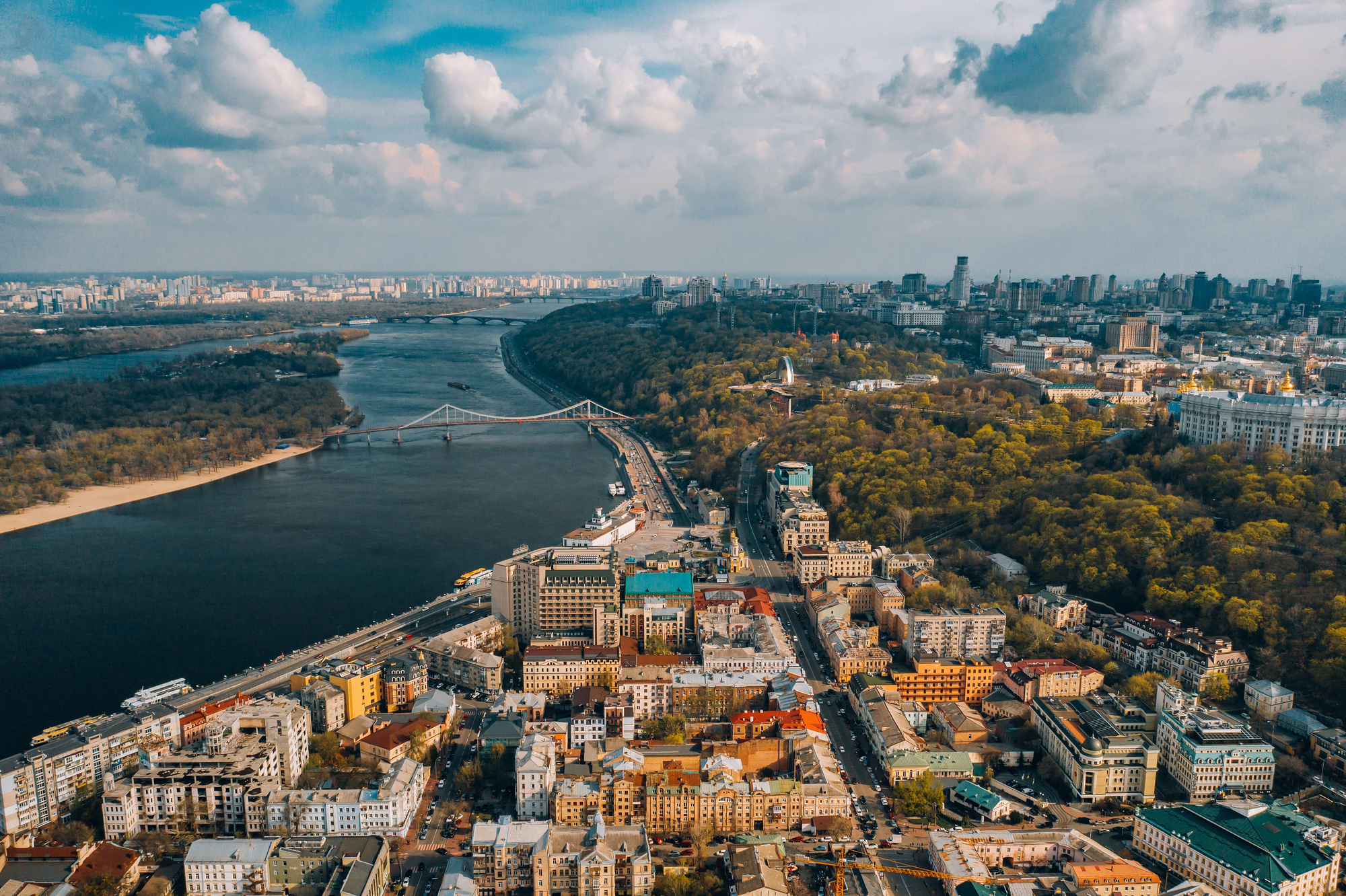During the 2023 Munich Security Conference, the UK Prime Minister Rishi Sunak and US Vice President Kamala Harris agreed that Putin’s war on Ukraine is a global war, “both in terms of its impact on food and energy security and in terms of its implications for internationally accepted norms like sovereignty.”
This statement sends an important message to many Western politicians and ‘opinion leaders’ who are still pushing a narrative that misrepresents the Ukrainian people’s heroic fight for freedom and humanity’s future as a kind of Russian-Ukrainian domestic squabble that has nothing to do with the free world.
Why do such views continue to exist even as the extremely cruel war grinds on? Russia has made this a hybrid war by weaponising misinformation and propaganda and using it to support conventional arms. Furthermore, Russia’s propaganda machine, which has multi-billion-dollar budgets and boasts a huge arsenal of weapons of ‘psychological mass destruction’, is still achieving many of its goals. The ‘carpet bombing’ of socio-political opinion – through social media, influencers, NGOs, think tanks, and political parties – has been going on for more than 15 years, starting at least as early as the memorable Munich Conference in February 2007, when Putin delivered a speech that some observers think was a lead-up to a new cold war.
It became a hot war back in 2014, when Russia first annexed Crimea and then captured a large swath of the Donbas. At that time, however, Russia’s hybrid war efforts rendered the international community reluctant to recognise the global nature of the conflict and the obvious threats to the world order’s status quo. On the contrary, for many years we had seen persistent attempts to categorise the hostilities as a local – or even a civil – war. It was only a year ago, when Russia launched its full-scale invasion of Ukraine, that the double standards became apparent.
The virus of easy solutions
The narratives circulated by Russian propaganda have fallen on fertile soil, given that in recent decades globalisation has often been a subject of heated discussions despite its obvious benefits. Its impact on economic inequality, both perceived and real, provokes strong feelings. This and other side effects of globalisation have been used by authoritarian and populist leaders to promote their agenda. The tensions that keep accumulating at the geopolitical level find release in, for example, the trade wars between the US and China, Brexit, and the increase in the number of military conflicts in the world.
Unlike COVID-19, populism and authoritarianism have been infecting societies and elites slowly and imperceptibly, having gone unnoticed for far too long. This is why familiar and convenient solutions were used to deal with ever more complex inconsistencies and challenges of modern times. The convenience of these simple solutions allowed the true nature of Putin’s regime to go unrecognised for so long. We should now focus on finding a vaccine for the virus of easy solutions just as was done for the recent pandemic.
The challenges faced by the world are now truly extreme. Having divided the world into ‘before’ and ‘after’ 24 February 2022, the unprovoked full-scale invasion by the Russian Federation of Ukraine became a trigger that aggravated the problems of the global economy.
Recession, the energy crisis, the forced slowdown of the ‘green agenda’, the increasing hunger in the Southern countries, social unrest in democratic countries and active populism – each of these recent challenges has been magnified by the war that Putin is waging against Ukraine and against the rest of the Western world.
The war may seem to have pushed the world further towards fragmentation and strategic autonomy. Yes, fragmentation exists. However, the common purpose in fighting evil has become ever more visible. Moreover, companies and governments are showing an increased ability to make difficult decisions. The EU’s decision to reduce their reliance on Russian gas was one of them. The search for alternative energy sources was mostly an urgent, painful, and costly process, yet it helped Europe return to the path towards energy independence, laying the foundation for a sustainable model of energy security. Eventually, Europe has gained a critical victory, bringing a strategic advantage in the fight against a common enemy rather than just a protection from energy blackmail.
The voice of common sense
When we communicate with the international community, our interlocutors are greatly impressed by the wailing of sirens and that discussions with Ukrainian bankers and others are being conducted even from bomb shelters. However, over time people even get used to these things, especially when these sirens wail thousands of kilometres away. Ukrainians must not be expected to get used to living under these conditions. If it does, authoritarianism will have triumphed over democracy, predatory instincts over human values, populism over common sense, and darkness over light. It will also mean the defeat of the civilised part of humanity across the planet, to which, as the experience of the recent pandemic has shown, the definition of ‘somewhere far away’ can no longer be applied.
If Ukraine is defeated, everyone will be defeated. Globally. Although the hostilities are taking place in Ukraine, the war is being fought at the global level. And it will have repercussions for everyone. Perhaps these repercussions will not be felt immediately, but in the foreseeable future it may lead to the collapse and the loss of democratic values, of everything that is enshrined in the charter of a united Europe and in the constitutions of free democratic states.
Ukraine’s victory will be a victory for the entire world. It will help overcome hunger, preserve democratic values, maintain the capabilities of international institutions and, ultimately, protect the lives of millions of people. As our fellow Ukrainian, Oleksandra Marviichuk, the head of the Ukrainian human rights organisation Center for Civil Liberties, aptly phrased it in her Nobel Peace Prize acceptance speech: “You don’t need to be Ukrainian to support Ukraine. You just need to be human.”
The central result of our joint victory should be the restoration of the world order and mechanisms of cooperation that are based on fundamental universal values. Opinion leaders – theoretical scientists, practical entrepreneurs, pragmatic politicians and actual defenders, who have not lost the ability to think critically and to find and implement complex solutions – should champion and promote real, rather than fake, criteria and standards.
This is why it is important to have this timely eBook to bring together contributions from experts across the world to give people an understanding of what this war is really about. That is why a ‘truce’ with the Kremlin would actually be a global defeat that would have, eventually, extremely dramatic global consequences. The authors use real (rather than false) hypotheses, arguments, estimates and predictions. For people who are truly concerned about Ukraine and the future of the world, who support efforts to that effect and who are taking steps to achieve a Ukrainian victory, the expert insights in this book will be a source of evidence and ideas, as well as a means to promote them.
#helpUkraine_helptheWorld
This publication is a part of a collection of essays initiated by the National Bank of Ukraine. Famous economists, political scientists and historians, experts recognized in the world, volunteered to share their thoughts and arguments on why helping Ukraine is helping the world. The complete book of essays can be found via the link.
Attention
The author doesn`t work for, consult to, own shares in or receive funding from any company or organization that would benefit from this article, and have no relevant affiliations



